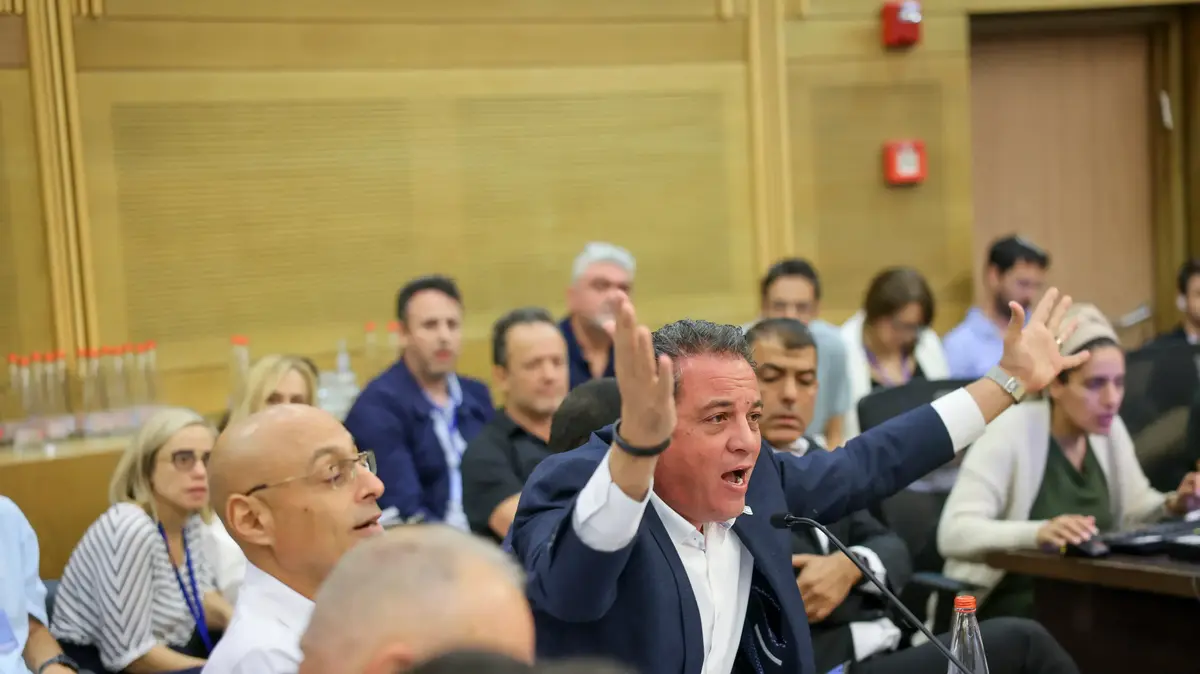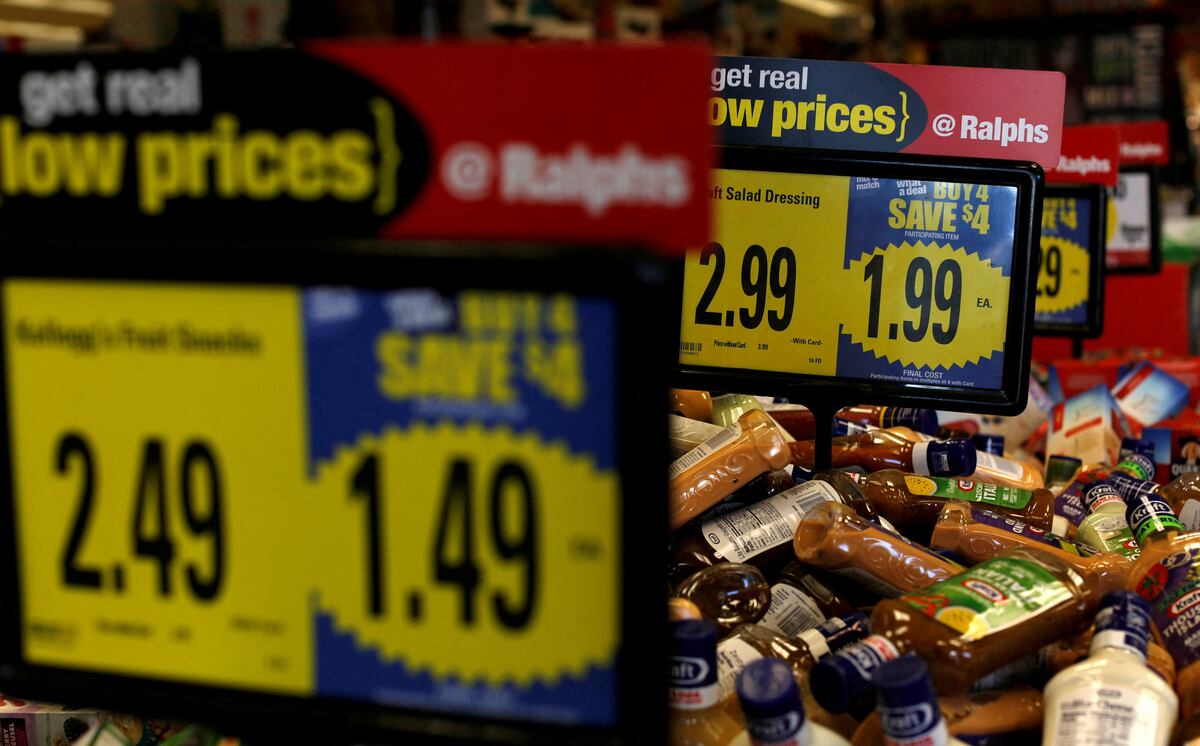- Business
- news
This is the economy, idiot: will our pocket actually decide the next election?
In Israel, the terms "right" and "left" refer to security issues, but the economic situation may tip the scales. Before Netanyahu and Gantz decide to run for office, they might want to keep an eye on the United States, where the public is less forgiving of unemployment figures. Instead of Iran, will the voter think about the empty refrigerator at home?
Tags- Elections
- financial crisis
- Benjamin Netanyahu
- Donald Trump
David Rosenthal
Friday, 07 August 2020, 14:11Israeli political discourse is traditionally divided between right and left. Netanyahu's supporters are on the right, the protesters against him are on the left. Without getting into the endless debate about who is right, the only meaning the parties mean is political-security. When you are called "left-wing" or "right-wing", you indicate your support or lack of support for political ideas such as annexation, peace agreements, a military move in Iran, etc.
But right and left are economic concepts no less than they are political. "What is 'left' in public perception?" Immediately asks and explains Zvi Stepak, The founder and co-owner of the Meitav Dash investment house, "These are people who want to reach a peace agreement with the Palestinians on a two-state basis, and who are economically socialists who care about the interests of the lower deciles. And who are the 'rightists'? These (mostly) support two states Only in more favorable conditions for Israel, and they are economically supposed to support the rich. This is how it is all over the world, they support the economy of a free market. "Kfar Shmaryahu, Ramat Hasharon, etc. And where does the Likud get most of its support? In the periphery. Indeed, an inverted world that has different explanations."
More on Walla! NEWS
The United States is no longer afraid of Biden: what is the Democratic candidate's economic agenda?
To the full article
This time when they get to the polls, there is a chance they will not forget. Independent protest, July 18 (Photo: Reuven Castro)Stepak also analyzes where this perception comes from: "Security considerations are a crucial consideration for many voters, so it is no coincidence that parties that look to the government 'equip' generals," he says. In an existential sense of anxiety around external threats like Hezbollah and Iran. Is it right to prefer this consideration over economic consideration? In my opinion not. Firstly, because the public really has no ability to say who is 'Mr. Security' and who is not, and secondly, in everyday life "Of interest to the electorate, especially in times of extreme economic tide or economic downturn accompanied by very high unemployment, which is the situation, unfortunately, today."
Many parties that tried to engrave the socio-economic agenda on their banner crashed. The most recent of which was the Orly Levy-Abaxis Bridge Party, which did not pass the blocking percentage in the elections to the 22nd Knesset and entered the 23rd Knesset on the back of cooperation with the Labor Party and Meretz. "Except for one case of 'all of us', which won 10 seats in the 2015 election, this is indeed the result," Stepak agrees, "there are parties that did not even bother to publish an economic platform before the election. I believe that in an extreme situation such a party has a chance. "A charismatic who knows how to speak to the public in his own language and unite a coalition of resentful and frustrated people from the current situation."
"I was the head of the campaign in the 1992 election," recalled former MK Avraham "Beiga" Shochat , who was appointed finance minister after that election. "We talked then about security, but also about changing public priorities. We concerned ourselves with housing and infrastructure, we moved the public thinking about these things, beyond security. "
The center-left won so huge but Shohat admits he does not know what weight analysis was an attempt to re-educate the public:" It is very difficult to isolate. There is a hard problem in Israel, things and an agenda that do not exist elsewhere. It is not only security, it is also the approach to Judaism and the reciprocity that is preserved. It is not for nothing that there was no decision here for three election campaigns. I do think today we live in a different saga. The public is traumatized. "
Prof. Yaron Zelicha , head of the accounting department at the Ono Academic Campus, served as Accountant General in the Ministry of Finance between 2003 and 2007. Even while sitting in the office, Zelicha did not spare his criticism and language and confronted the capitalists. After four years of struggles and efforts to expose corruption he resigned. Zelicha saw how the business is run up close, and especially understood why the parties in Israel are so afraid of economic struggles. "The meaning of a different economic policy than the one we have today is to go out against monopolies," says Zelicha, who was one of the prominent voices in the 2011 protests and in the years that followed. "It is convenient for both left and right not to confront the tycoons. "To do that, they ran the country. In the opposition are Lapid, Ya'alon and Lieberman, Netanyahu's biggest opponents. If they start with economic statements, we will see them."
The hysteria that politicians broadcast permeates, according to Zelicha, well into the public and completely distracts the economic discourse. "In Western countries the security consideration is less substantial. This issue is just less important there, but we are the most threatened country in the world and politicians from left and right have become accustomed to volume far beyond what is required. Instead of explaining why their government distorts taxation between small and large businesses, "The peace process has already been signed" and more slogans. "
Despite everything, Zelicha thinks that today, more than ever, the ground is ripe for change: "Every rational person has a cost and a benefit in his decisions. The benefit of voting is subjective, but I know the cost and that is what I am trying to educate the public about. The public already understands what it means to choose a person whose managerial ability is shocking and how it affects his economic and health security. For example, for years, small banks have closed here until we become a banking duopoly. Now that businesses need credit, everyone is breaking the bank. How to get out of the situation. "
"I think we are indeed witnessing a real change in public perception," confirms Stepak. "This perception stems not only from the very reality of unemployment, but marks a fundamental problem in the contract between the state and its citizens. There is no transparency, there is an increase in corruption and a decline in trust in government institutions. "There is a good chance that the current protest is only in its infancy and will intensify."
Shochat details: "I think security still has weight, but the next election, in my estimation, will be in line with the trauma we are going through. It is a triple trauma. There will be harsh criticism of the conduct of Corona treatment, I think the economic crisis will have an impact. "The prime minister, in the opening of the trial and in the demonstrations that keep this issue on the agenda. It is impossible to say with confidence that it will be decisive, anything can happen, but unlike the previous election campaigns, it may be a decision this time."
Talk of an election has never been off the agenda, on the contrary - it seems we're really on our way there, and it's time to take a look at a place where they'll be sure to vote in 3.5 months - the United States. The reason for the decline in Donald Trump's popularity is not political and does not stem from sexist statements or embarrassing statements, it is net economic. In four election campaigns, an incumbent president has faced a recession in the second half of his term. In all four of these systems he lost. When the Americans' pockets are hit, so does the president's chair. If they do not see a rosy future, they will make it go away.
"In the United States, economic considerations are a decisive factor in people's choice, hence the phrase, 'This is the economy, you idiot'" (the same nature of Bill Clinton's strategist James Carville - Dr.), Stepak explains, "It's no coincidence that President Trump appropriates The rises in the stock market.The American citizen does not live under a sense of existential anxiety, and he is hardly interested in foreign affairs nor understands them.
"Trump has been damaged in the polls as a result of the corrupt and disrespectful treatment of Corona and its aftermath," Stepak continues. "The death toll is staggering. "The vote itself, which is also crucial financially, is not expected to change. However, the results of the presidential election will be greatly affected by the data to be published in September-October. If these indicate a rapid decline in unemployment, Trump could return to the picture."
With the growing disagreements between the two senior partners in the coalition, the Likud and Blue and White, and with the disagreement over the budget, it seems that we too will soon go to the polls. Will people behind the curtain remember the economic problems from home? Experience says no, but we are in 2020, the year when all the crazy things happen.















